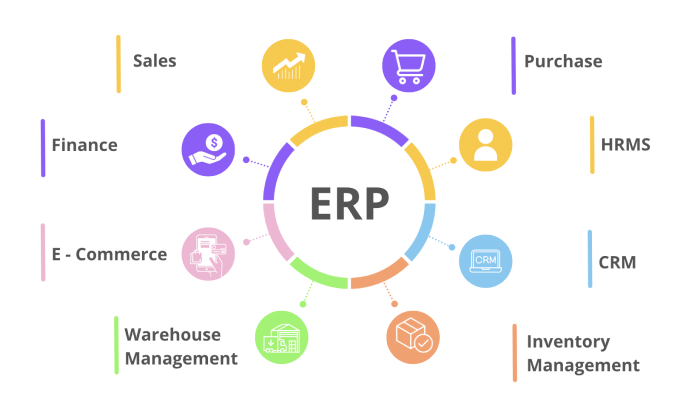ERP Testing
What is ERP Testing?
ERP testing is the process of assessing and validating the functionality, performance, and reliability of an ERP system prior to its deployment into a live environment. The main goal of ERP testing is to ensure that all the components in the ERP system meet specified requirements and give the expected outcome.

ERP systems significantly differ from traditional web applications since they combine multiple business processes and workflows from various domains. So, ERP testing requires domain knowledge from different areas such as financials, human resources, and supply chains, and a good understanding of both the functional and non-functional requirements of the system.
ERP Testing Types
ERP testing involves several specialized tests covering different aspects of the ERP system, such as module performance, data integration, and system security. Understanding these types helps verify that the ERP system operates seamlessly and meets organizational needs.
- Functional Testing: Focuses on checking whether individual modules or features within the ERP system are working correctly. It examines how the system behaves when subjected to various scenarios and ensures it meets current organizational needs.
- Integration Testing: ERP systems contain a large number of modules that interact with each other to complete a business process. Integration testing is used to verify that these modules interact with each other without any issues.
- Performance Testing: Evaluates how well the application performs under various scenarios through load, stress, and scalability tests.
- User Acceptance Testing (UAT): The ERP system should be tested in terms of usability to determine user-friendliness. This testing is done by real users who provide feedback based on their experience using the system.
- Security Testing: Checks for vulnerabilities and other security threats within an ERP system. It involves analysis of data protection systems, user access controls, and compliance with standards and regulations related to security.
- Regression Testing: Regression testing ensures that any new changes or updates made to the ERP systems do not negatively impact the functionalities. It helps to ensure that new lines of code are not going to introduce new defects or issues into a program.
Benefits of ERP Testing
Effective ERP testing offers numerous advantages, from ensuring system reliability to enhancing user experience.
- Ensures System Reliability: Proper testing can detect and correct all errors before live deployment. This ensures that the system works reliably as planned, meeting business needs effectively.
- Enhances User Experience: By conducting user acceptance tests, organizations can ensure that their ERP systems are easy to use and have higher adoption rates.
- Improves System Performance: Performance tests help developers easily identify and fix areas with performance bottlenecks. This is particularly useful when handling huge requests for heavy transactions, like in e-commerce sites, to achieve optimum results.
- Reduces Risks and Costs: Thorough testing of ERP solutions decreases chances for post-deployment failures. Addressing these issues in the early stages will significantly reduce the cost and effort needed for fixes.
- High Security: Security and compliance testing ensures the ERP system adheres to relevant regulations and standards, protects sensitive data, and maintains regulatory compliance.
[blog-subscribe]
Challenges in ERP Testing
Although ERP testing comes with many benefits, the complexity of ERP systems makes it challenging to test every aspect of the application. This section explores the common obstacles encountered in ERP testing and their impact on the overall development process.
- Complexity of an ERP System: The architecture of an ERP system is known to be quite complex, with a large number of modules. This complexity makes testing difficult and time-consuming.
- Integration with Legacy Systems: Most organizations have legacy systems that need to work alongside the new ERP system. Testing these integrations might be difficult due to compatibility issues and challenges in ensuring the data is consistent.
- Domain Knowledge: ERPs are tailored to handle specialized business requirements. Testing these specific requirements requires a good understanding of the process, proper prior planning, and perfect execution to get the maximum result.
- User Involvement: For user acceptance test cases to work effectively, end users must participate actively in the testing process. However, sometimes, the niche nature of the system will make it difficult to get sufficient users to test the application.
Conclusion
ERP testing is an essential process for ensuring the functionality of an ERP system. It uses a combination of different types of testing, such as functional, integration, performance, user acceptance, security, and regression, to ensure the reliability and performance of the application. Although the complexity of ERP systems makes it difficult to test each aspect of the application, the benefits of ERP testing outweigh the challenges we have to face. So, we should always try to increase the ERP test coverage of our applications to deliver the best product to the end user.